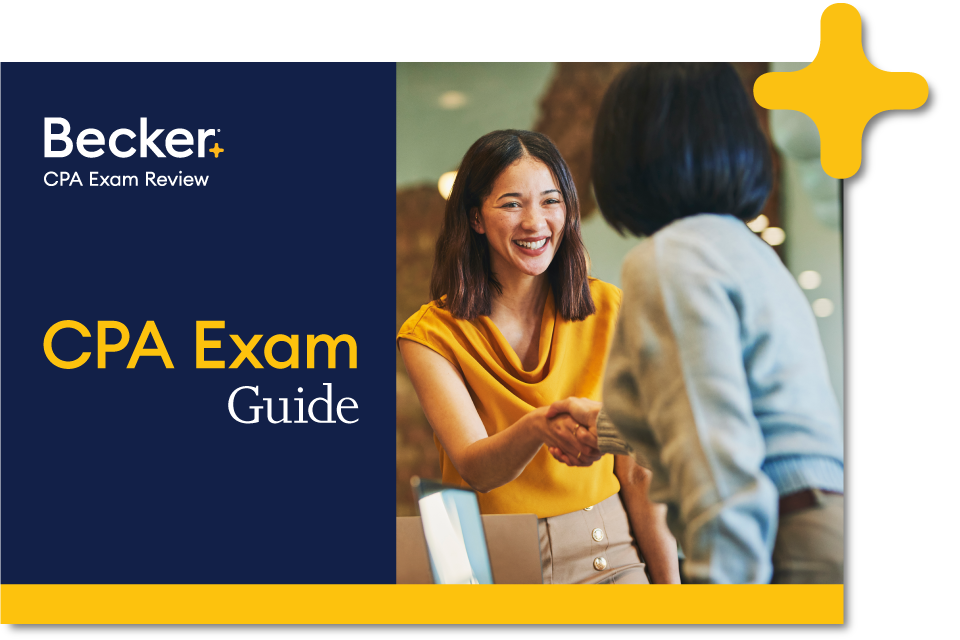
Accountants and CPAs have plenty of job flexibility; your career could go in many different directions, across many different industries. If you land in public accounting, you may consider tax or audit as a career specialization. Is one of these functions right for you? And if so, which is a better fit?
We’ll unpack everything you need to know, so you can choose tax or audit with confidence as you start and grow your career.
Tax or audit: What's the difference?
While tax accountants and auditors both follow the same generally accepted accounting principles (GAAP) and know the ins and outs of financial law and regulations, there are key differences in their focus and functions.
Tax accounting overview
Tax accountants serve organizations and individuals by reviewing their financial documents to plan and file taxes, ensuring precision and maximizing their tax breaks and returns. Tax professionals make sure that their clients are compliant with the law and that their taxes are filed accurately.
Audit accounting overview
Auditors review the financial statements that accountants prepare, checking for accuracy and compliance with appropriate regulations. After this review, auditors are responsible for communicating their findings with the client.
Audit or tax: Skillsets
All accounting professionals need great attention to detail and strong communication skills. But given the difference in functions of audit vs tax jobs, the skills you need for each also naturally differ.
While tax accountants interact with their clients regularly, they also spend much of their time working in the office on their own. They need to be self-motivated and diligent, without tiring of spreadsheets and equations. They must know every detail of tax law, especially as it relates to their clients’ particular businesses.
Auditors constantly work with others, meeting new clients’ accounting teams and integrating as they conduct their audits. They need to have excellent teamwork skills to successfully navigate working alongside those they are evaluating.
Tax Accountant Skills | Auditor Skills |
| Attention to detail | Attention to detail |
| Communication skills | Communication skills |
| Knowledge of tax law and tax reporting | Knowledge of audit standards and regulations |
| High-level mathematics | Critical thinking and problem solving |
| Good computer skills | Good teamwork skills |
| Organization and business understanding | Interpretation and analysis of financial data |
Audit vs tax career options
When it comes to your accounting career path, whether you choose to specialize in tax or audit, you have a variety of options.
The need for auditors has grown significantly in recent years, with regulation increasing the demand for auditors of all experience levels, across all industries. Auditors also tend to see career advancement into other upper-management finance positions, exiting to roles such as:
- CFO
- Valuation Manager
- IT Auditor
- Financial Accounting Leader
- Finance Manager
Tax professionals, like auditors, may find themselves working across industries—with clients in everything from energy to commerce to non-profit, and even individuals or families. While you may start working as a tax accountant for a larger business, career advancement in the tax world often allows you to build your own client base and open your own firm. Other tax opportunities include:
- Enrolled Agent
- Tax manager
- Tax specialist
- Financial planner
- Tax advisor
Audit vs tax qualifications
Whether tax or audit, all accountants require education and (in most cases) advanced certification to practice. However, these requirements vary by specialization.
Audit accountant qualifications
To pursue a career in audit accounting, you must first earn a bachelor’s degree in accounting, finance, or some related field. Some students also go on to earn a master’s degree, or work internships with large accounting firms or corporations that help prepare them with the experience to work as an auditor.
In addition to education, many job positions for audit professionals also require a CPA license. And to specialize even further in your auditing career, you could earn a Certified Internal Auditor (CIA) certification—giving you more auditing credibility, earning potential, and job opportunities.
Tax accountant qualifications
Like audit work, tax positions require a bachelor’s degree in accounting or similar study, with additional relevant internships and graduate-level study increasing your job prospects.
Also like auditors, you will need a CPA license (or an Enrolled Agent) credential to represent clients before the IRS as well as to advance your career as a tax professional and expand into other areas of specialization. On the other hand, those who know they want to work exclusively in tax accounting may choose to earn their Enrolled Agent (EA) credential instead. This IRS-designated title does require that you pass a lengthy exam; however, it focuses exclusively on tax work and is therefore less rigorous than the CPA Exam, making it appealing to those interested in focusing solely on tax work.
Tax or audit: Salary insights
Salary can play a major deciding role in whether to grow a career in tax or audit services. The good news? Both specializations have high earning potential.
Earnings vary greatly depending on career position and geographic location. However, national averages of tax vs audit positions are very similar. While the expanding nature of the audit industry offers more job prospects, tax positions may pay higher because they require such specialized knowledge. But this difference is slight, with auditors averaging $71K - $113K per year1 and tax accountants averaging $79K - $116K annually.2
Tax or audit: How to choose
Your career is in your hands—and although this is a great opportunity, it can feel like a lot of pressure. It’s important to consider each option carefully to find the best fit for your goals and interests.
Test the waters.
Before deciding tax or audit, you should have a first-hand understanding of how you perform in both specialties. If you can, get internships in both tax and audit. There’s no better way to scope out these careers than being in them. Alternatively, consider meeting with colleagues on tax and audit teams to learn more about their experiences.
Match your career interests with your lifestyle.
Your job satisfaction may be directly connected to how well the role matches your personal lifestyle. Auditors often go to their clients, so likely travel often in this role. If you're exploring tax, never forget about tax busy season. From January until April, tax accountants are expected to work incredibly long hours and have intense work schedules.
Find your passion.
Both tax and audit span across all industries. If non-profit work motivates you, work for an organization you're passionate to support. If finance, retail, or manufacturing catch your interests, do tax or audit for one of them. The size and industry of your firm or organization can make or break your accounting experience.
Audit or tax: Next steps
No matter whether you choose a career in tax or audit, the benefit of a CPA license is undeniable. CPA licensure allows you to take on these roles more fully and expands your knowledge within your functional area. It's also a great step for continual career advancement in any specialization you choose.
Get Becker's free 2024 CPA Exam Guide
If you want to learn more about the CPA Exam and get tips to pass plus practice questions, download our free 2024 CPA Exam Guide today!










